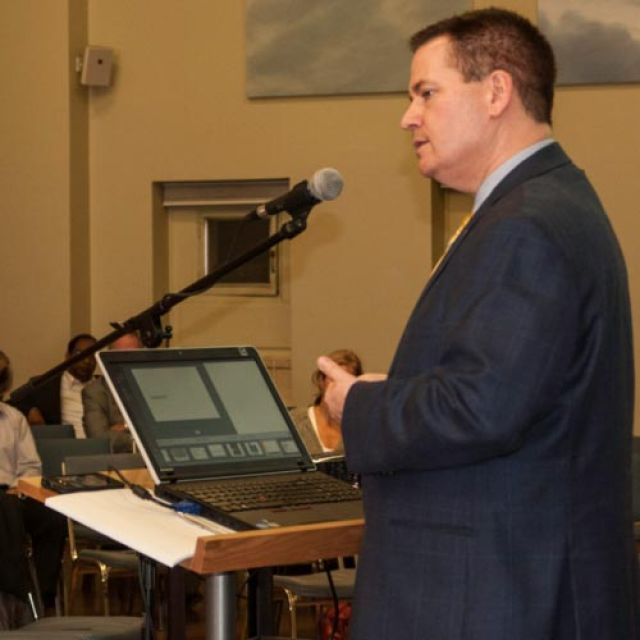For the most part people don’t have a plan, Rick Firth told a small audience for the 2012 Cardinal Ambrozic Lecture of the Canadian Catholic Bioethics Institute Dec. 5. Failure to plan causes untold heartbreak in families and huge headaches for Ontario’s health care system, Firth said.
As the executive director of Hospice Palliative Care Ontario, Firth is trying to get people talking about what happens when we die.
When there is no plan, or if people don’t know they have options in terms of care, assisted suicide and euthanasia rear their heads as if they were the only possibilities, Firth said. Getting people to plan for palliative care can take those options off the table.
“Nobody plans for death, but only 2.5 per cent of deaths in Ontario are sudden,” said Firth.
When people get married they plan for children, when they have children they start buying insurance, when they buy a house they plan for retirement. There doesn’t seem to be a life-marker telling people it’s time to plan for Alzheimer’s, cancer, heart failure and pulmonary obstruction.
People who haven’t designated someone to make medical decisions for them when they can’t, or who haven’t spoken to their families about when to opt for palliative care, usually wind up in the emergency ward when getting better isn’t really an option. Not only are those days spent in hospital stressful for families, they’re a problem for maintaining the health care system.
A day in the emergency ward typically costs about $10,000. Acute care beds are $1,800 per day. Hospice beds are about $430 per day.
Firth would like to get parishes helping people to plan. Hospice Palliative Care Ontario has 80 trained volunteers who can lead a seminar on advance care planning.
The CCBI also thinks helping people get down to brass tacks with an advance care plan would constitute practical pastoral care in parishes. It’s also a matter of social responsibility, said CCBI director Moira McQueen.
“We very much encourage parishes from a responsibility point of view to be involved,” she said.
“When care is planned then delivery is thought through,” said Firth. “That brings down the total cost of care.”
In Ontario you can’t just write down a list of instructions to a doctor and get it notarized. With the 2004 Substitute Decision Act legislators decided that having doctors and nurses try to interpret documents in the emergency room would be a recipe for trouble. A plan with legal force has to include a substitute decision maker, often someone appointed through a power of attorney for personal care.
The Ontario Seniors’ Directorate publishes a 46-page Guide to Advance Care Planning, which can be downloaded from www.seniors.gov.on.ca/en/advancedcare/index.php.
Hospice Palliative Care Ontario has its own web site with advice on how to go about making a place at www.advancecareplanning.ca.


